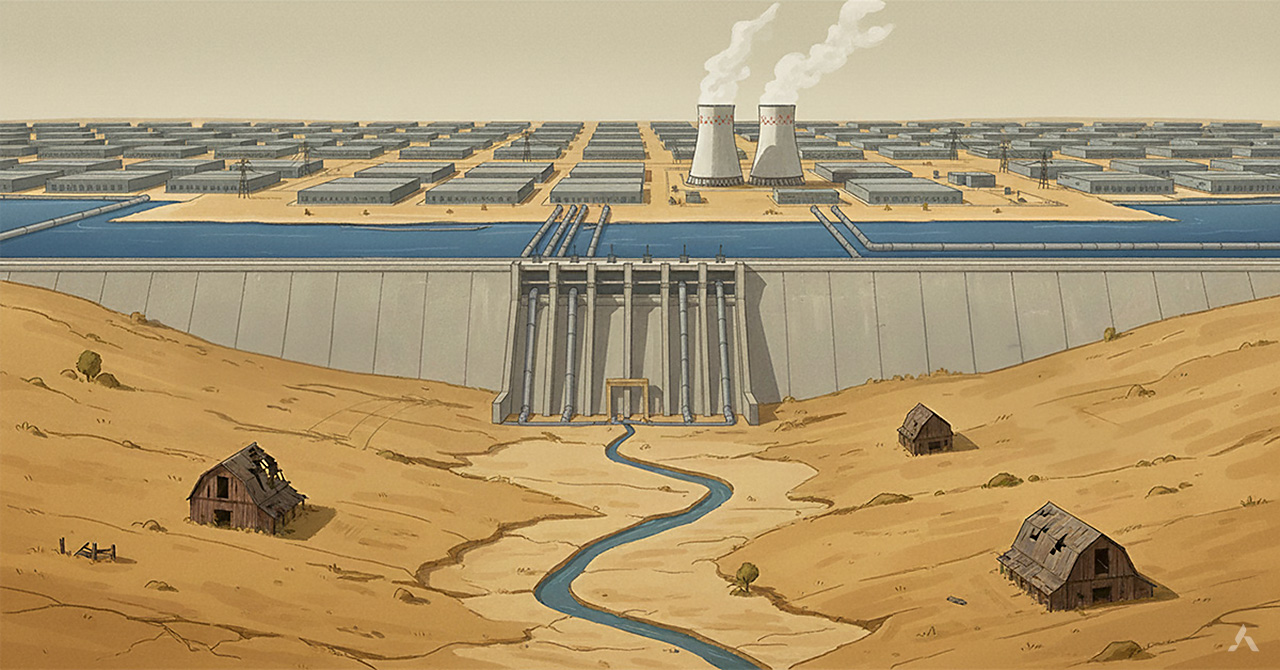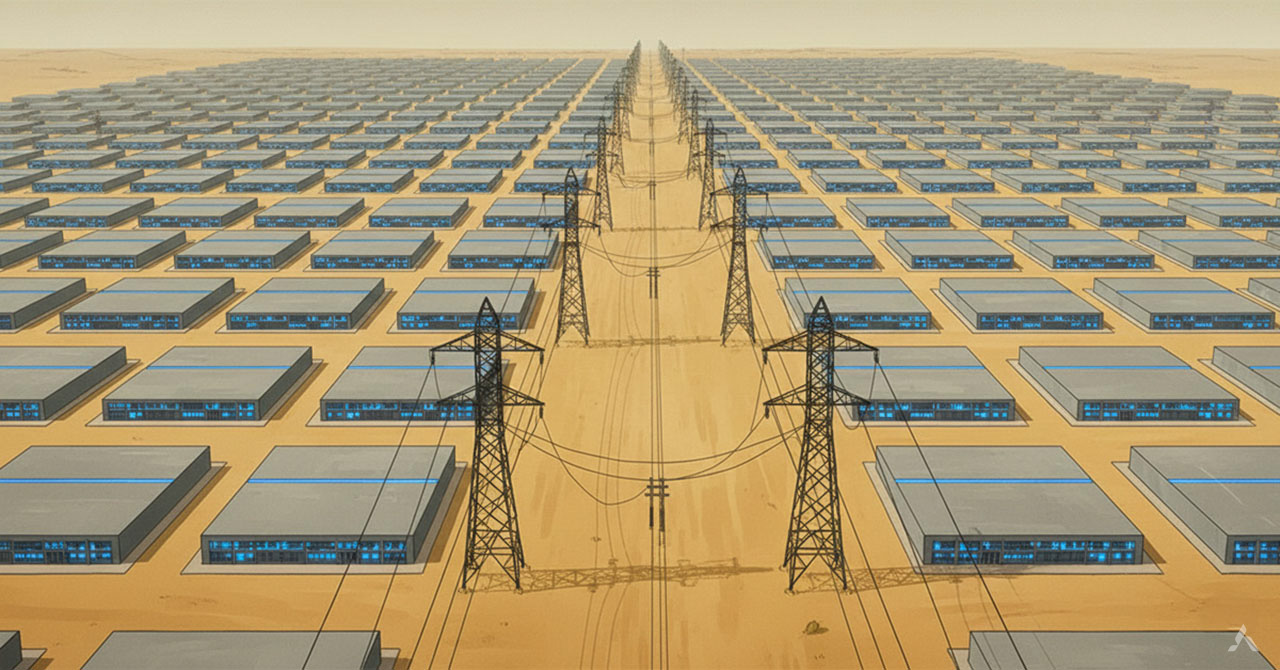Series•Shaping the AI Frontier — Part 2 of 3
The Hidden Price of Intelligence: Is AI Worth the Water and Power It Consumes?
To reach the future faster, we may be consuming the very future we hope to reach. AI promises to save us time, but the price is already landing on local communities, water tables, and power grids.
We live in a time of strange haste. The world feels like it's coming apart — wars drag on, plastics choke our oceans, politics fracture — and our instinct is to move faster, build faster, compute faster.
Here's the paradox: the very thing we are rushing to build may cost us the ground beneath our feet. To reach the future faster, we may be consuming the very future we hope to reach.
Artificial intelligence promises to save us time, perhaps even save us from ourselves. But the price of that promise is already landing on local communities, water tables, and power grids. And it arrives on top of crises we already carry — like the slow-motion plastic apocalypse.
A Generational Relay of Catastrophes
When I was young, the fear was nuclear holocaust — that the world might vanish in a sudden white flash.
My daughter, who is 24, belongs to a generation haunted by a different apocalypse: the slow-motion collapse of climate systems.
And in between, we've lived through the plastic apocalypse. Billions of tonnes of synthetic waste ground down into dust, threading itself into the tissue of creatures great and small — including us. Recent studies suggest we may carry microplastics in our brains, up to seven grams each. Imagine that: part of your very self made from the dust of supermarket packaging.
This is why AI feels so seductive. It offers speed, clarity, acceleration. A prosthetic imagination. Maybe the only way to outpace the poisons we've already set loose.
Data Centres as Cathedrals of Consumption
To run AI at scale requires massive data centres — humming, lightless cathedrals of heat and noise.

- They draw gigawatts of electricity, pushing up prices for ordinary households as wholesalers optimise for their enormous appetites.
- They drink millions of litres of water to cool their processors, diverting it away from rivers and farms.
- They leave behind communities wondering why their bills are higher and their taps run dry.
From Dublin to Texas, residents are already protesting. They know what it means to live in the shadow of these intelligence factories.
The question is brutally simple: is their sacrifice worth it?

The Poison Chalice and the Prosthetic Imagination
It's tempting to say: if AI costs too much, abandon it. But doing so means accepting the inertia of what we already have: politics of cruelty, commerce that poisons, plastics that endure for millennia.
We are already drinking from the poison chalice.
The hopeful optimist in me believes AI might still be different. Not because it is clean or perfect, but because it can act as a prosthetic imagination — a way to ask new questions, propose new strategies, and solve problems at a scale and speed we've never managed before.
Demis Hassabis and his team at DeepMind have already shown that AI can deliver Nobel-worthy breakthroughs in medicine. And on a smaller scale, I've seen it too: I've made poetry with AI, debated politics with AI, solved business problems with AI faster — sometimes better — than I could alone.
If intelligence can be stably diffused across society, distributed in the cheapest of technologies — phones, laptops, low-cost networks — then perhaps this paradox holds: the risk of building AI might be the very thing that gives us a chance to repair what is broken.
The Question That Remains
So the question is not only: what does AI cost us? It is also: is our imagination adequate to use it well?
If we fail to imagine new questions, AI will simply accelerate old poisons. If we dare to imagine differently, perhaps it can help us step onto a road of infinite best steps: toward safer, more ethically distributed, environmentally protective ways of living.
Ready to Automate Your Business?
Let's discuss how AI automation can transform your operations.
Get Started Today
